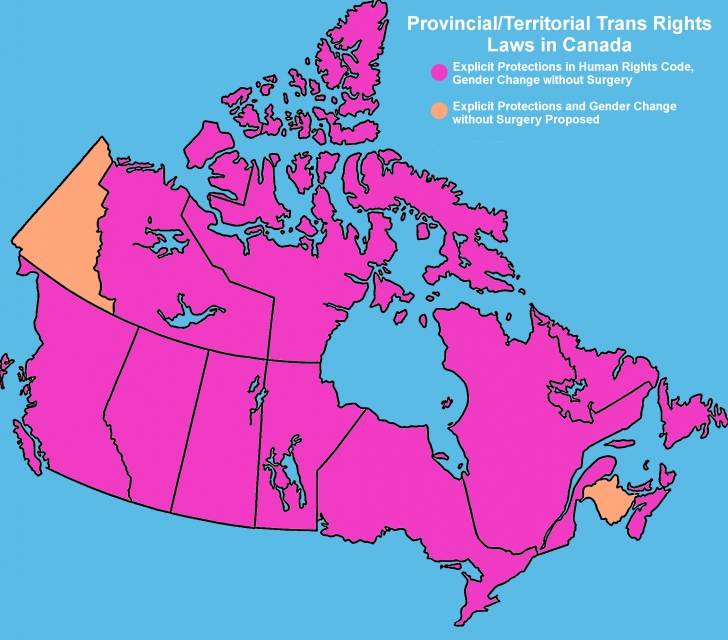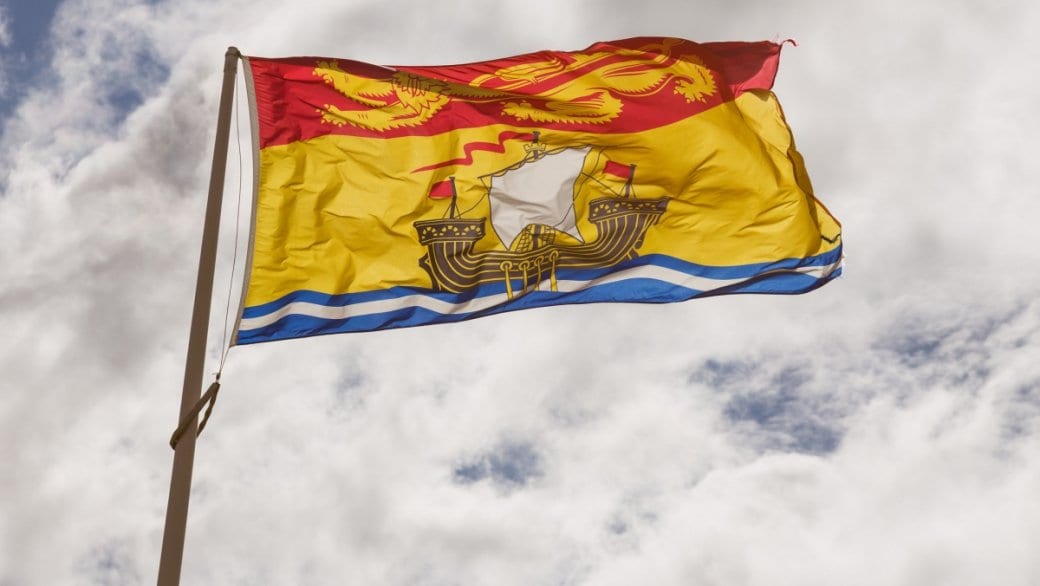The New Brunswick government introduced a bill to explicitly protect trans people under the province’s human-rights act, making it the last province in Canada to do so.
Bill 51 adds “gender identity or expression” to the list of prohibited grounds for discrimination in New Brunswick. It also adds the category “family status,” intended to protect single parents from discrimination. It was introduced March 15, 2017, and had a second reading the next day.
The province has also introduced Bill 37 to amend the province’s Change of Name Act and Vital Statistics Act. The bill removes the requirement for gender-confirming surgery in order for trans people to change the gender marker on their birth certificates and simplifies the process of obtaining a legal name change.
Bill 37 was introduced in December 2016 and had its second reading Feb 14.
Together, the two bills would bring New Brunswick in line with how all other provinces, as well as Nunavut and the Northwest Territories, protect trans people from discrimination and allow them to access gender-confirming documents. Bills to make similar changes in Yukon have been proposed but not yet introduced.
Michelle Leard, who founded the trans support group UBU Atlantic and is based in Moncton, says the big changes in New Brunswick are the culmination of two years of talks between the government and trans advocacy groups.

The New Brunswick government moved to include gender-confirming surgery in the provincial health care plan last summer in response to local advocate demands. It was the last province to do so.
“For a long time we haven’t had an organized request to have these things,” Leard says. ”I couldn’t possibly be happier because what we’ve wanted and asked for, we’re getting.
“Seeing this happen, with trans issues being more on the national stage, to the [New Brunswick Human Rights Act], it really legitimizes the situation for trans people in New Brunswick.”
Leard also says that Prime Minister Justin Trudeau’s support for the federal trans-rights bill C-16 has also helped nudge provincial premiers along.
“Once you see our prime minister say, ‘this is something I want to see happen,’ it makes the premiers say, ‘how long can we say no?’” Leard says.
With trans people soon to protected in all jurisdictions in Canada, the pressure increases on the Senate to pass Bill C-16, which adds “gender identity” and “gender expression” to the Canadian Human Rights Act and to the list of aggravating factors in the hate crimes provisions of the Criminal Code. A committee is expected to hold hearings on the bill in April before a third and final reading.
Editor’s note, March 17, 2017: A previous version of this story incorrectly spelled Michelle Leard’s last name.
UBU Moncton is holding a Trans Day of Visibility public meeting on April 2 at the Moncton Community Peace Centre.


 Why you can trust Xtra
Why you can trust Xtra


